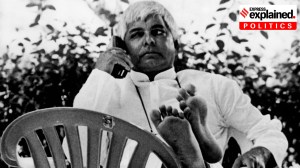‘Eastern bloc’ reigns supreme in Wrestling
No western country was able to make a mark at the Olympics' wrestling event, as Russia and erstwhile Soviet Union nations continue to dominate this event.

Georgia put up the stiffest resistance, but in the end Russia consolidated their lock on Olympic wrestling in Beijing, winning six gold medals, one better than in Athens in 2004.
The Russians and their neighbours in the Caucasus and the Ural mountains, as well as the countries that made up the former Soviet Union, accounted for the nine gold medals in the men’s events.
No other country aside from Georgia, with two, won more than one gold medal in the men’s events; in women’s freestyle wrestling, traditional powerhouse Japan also took two gold medals.
China repeated their lone gold medal in Athens, this time through world junior champion Wang Jiao in the 72kg class, while Canada won one title. Turkey, the United States, Cuba, Italy and France won the other men’s golds.
The US and Canadian wins had a distinct immigration flavour to them, with Henry Cejudo, the son of illegal immigrants from Mexico, winning one for the US and Carol Huynh, daughter of Chinese-Vietnamese refugees, winning one for Canada.
Meanwhile, a Swede accounted for the tournament’s only major controversy when he binned his bronze medal in protest at the judging, which he thought had robbed him a place in the 84kg Greco-Roman gold medal match.
Ara Abrahamian, who was subsequently disqualified, has taken his case to the Court of Arbitration for Sport.



- 01
- 02
- 03
- 04
- 05



























